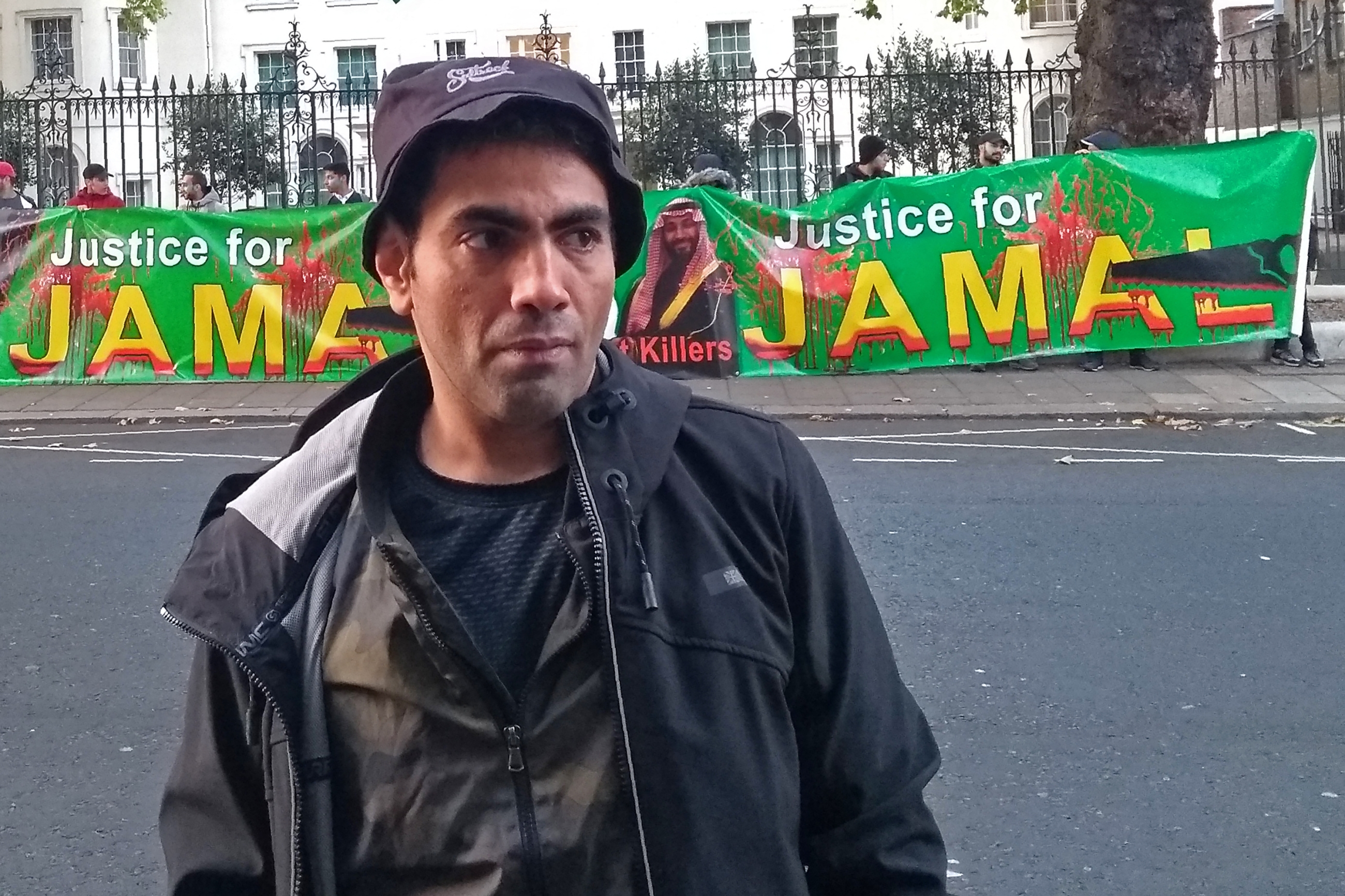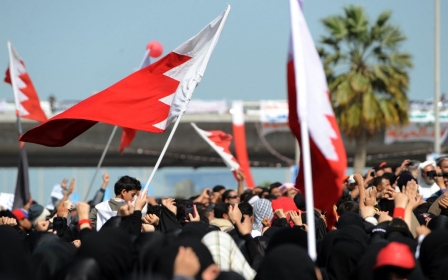Pegasus: English court rules Saudi dissident's case against kingdom can move forward

A Saudi Arabian dissident who alleges that Riyadh installed spyware on his phones and ordered an assault on him can proceed with his lawsuit against the kingdom, England's high court ruled on Friday.
The judgement in Ghanem Al-Masarir's case is the first-ever ruling in a UK court involving spyware and a foreign country and could set precedent for other British-based dissidents alleged to have been the targets of state-sponsored surveillance on British soil.
Masarir said it was a "huge relief" that the judgement had gone in his favour and said the alleged targeting with spyware and assault had had "a profound effect" on his life.
"I no longer feel safe and I am constantly looking over my shoulder. I no longer feel able to speak up for the oppressed Saudi people because I fear that any contact with people inside the kingdom could put them in danger," he said.
New MEE newsletter: Jerusalem Dispatch
Sign up to get the latest insights and analysis on Israel-Palestine, alongside Turkey Unpacked and other MEE newsletters
Masarir used his YouTube channel, which had more than 300 million views at the height of its popularity in 2018, to make fun of the Saudi royal family, particularly Crown Prince Mohammed bin Salman.
'I no longer feel safe and I am constantly looking over my shoulder. I no longer feel able to speak up for the oppressed Saudi people'
- Ghanem Al-Masarir
The lawsuit accuses the Saudi government of infecting Masarir’s phone in June 2018 with Pegasus, military-grade spyware that it acquired from Israeli company NSO Group.
His phone was examined by experts at the University of Toronto’s Citizen Lab, who confirmed that he had been sent malicious texts associated with Pegasus and concluded “with a high degree of confidence” that Saudi Arabia was responsible, Masarir’s lawyers have said.
Once installed, it would have allowed them to access his microphone and camera to hear and record what he was doing, as well as examine location data, all stored messages and images, and the phone's browser history.
The lawsuit also alleges that the Saudi government directed an attack against Masarir across the street from Harrods in London on 31 August 2018, an incident that was caught on film and appeared on social media accounts linked to the authorities in Riyadh.
He is bringing a claim for personal injuries resulting from both alleged attacks. States are normally shielded from most litigation in the UK, thanks to the State Immunity Act of 1978, enacted before spyware existed.
But the judgement handed down on Friday ruled that Masarir’s case is an exception.
The ruling could open doors for other UK-based dissidents and civil society leaders trying to bring legal action in Britain over claims they were targeted with spyware by Gulf countries in recent years.
They include Saeed Shehabi and Moosa Mohammed, two prominent Bahraini activists living in London, who are trying to sue Bahrain over allegations that the kingdom infected their personal computers with FinSpy surveillance software.
Three others - Saudi human rights defender Yahya Assiri, Anas Altikriti, head of the Cordoba Foundation, and Mohammed Kozbar, chairman of Finsbury Park Mosque - have also taken legal action in the UK over spyware allegations.
In April, their lawyers notified NSO Group, Saudi Arabia, and the United Arab Emirates that they plan to sue them in the high court over allegations that the two states infiltrated their phones with the Israeli firm's spyware.
Masarir's lawyers at London-based firm Leigh Day said they hoped the judgement will provide "a beacon of hope" that foreign governments won't be able to hide behind state immunity in spyware cases.
But they also said they were disappointed that the British government had done "so little" to protect dissidents like Masarir from such attacks.
Martyn Day, a senior partner at the firm, said: "It seems clear that such attacks on people living in our country are becoming ever more common as the spyware software becomes more and more sophisticated.
"Whilst it is very good to know that NGOs like Citizens Lab and Amnesty International Tech are keeping an eye on the use of such software in this country, surely it is for our own security services to be undertaking that protective role.”
Middle East Eye delivers independent and unrivalled coverage and analysis of the Middle East, North Africa and beyond. To learn more about republishing this content and the associated fees, please fill out this form. More about MEE can be found here.




